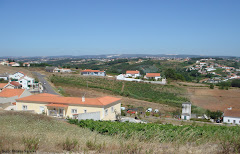
Quando:
10-11 Outubro 2014
Onde:
Lisboa
Organização:
Institute of Social Sciences of the University of Lisbon (ICS-UL), for URBACHINA
Institute of Studies for the Integration of Systems (ISIS), for URBACHINA
Institute of Future Cities of The Chinese University of Hong Kong (IfC-CUHK)
Under the theme Urban Futures-Squaring Circles: Europe, China and the World in 2050 this conference will explore advances in long-term thinking and foresight studies related to the urban question. The Conference builds on an on-going project (URBACHINA), partly funded by the 7th Framework Programme of Research and Innovation of the European Commission, which entails the definition of a scenario space for urbanization to 2050, and the development of alternative scenarios for European and Chinese cities.
This comprehensive theme allows for a wide range of topics concerning the future of cities, which were organized based on two core themes and four thematic threads:
Core Theme I.
Scenarios for Cities of the Future
- “Urban Concept” 2050 .
- Sustainable Urban Visions 2050 .
- Planning for cities and regions
Core Theme II.
People and Societies in Future Cities
- Daily life and lifestyles .
- Liveability and sustainability .
- Geography and place versus virtuality .
- Individual versus collective .
- Values and worldviews
Thematic thread A:
Forward Thinking Methods
- Innovative forward looking techniques: quantitative or qualitative?
- The normative versus exploratory debate
- Foresight and strategic planning
Thematic thread B:
Governance in Future Cities
- E-governance and activism
- Participatory governance
- Collaboration and responsibility
- Solving tensions
Thematic thread C:
Future of Resources
- Scarcity and “enough”
- Urban metabolism
- Urban ecological footprint
- Self-sufficiency
Thematic thread D:
Future of Urban Systems
- Emerging technologies for urban systems
- Intelligent environments
- Internet of things
The two core themes reflect the main concern of this first conference.* We are interested in the sustainable future of cities – for the people who will live there. Each thematic threadcontributes directly or indirectly to this concern, and can cover several debates and topics, as fully described under THEMES. We seek to discuss current urbanization trends and resulting challenges for Cities with respect to these six interrelated topics, and to identify research priorities and collaborative opportunities between the EU and China. From a policy perspective, we aim to identify ways to strengthen the effectiveness and impact of foresight mechanisms in the framing and delivering of urban sustainable and liveable futures.
...
The conference is therefore designed to provide a necessarily interdisciplinary forum for researchers and practitioners from the social sciences and the humanities, as well as the natural science fields of knowledge and practice. Besides the research community, we wish to engage companies, policy makers and representatives of civil society in debating the future of cities.
...
Ver mais:
http://www.ufsc2050.ics.ul.pt
Enviado por:
Luis Balula













Sem comentários:
Enviar um comentário